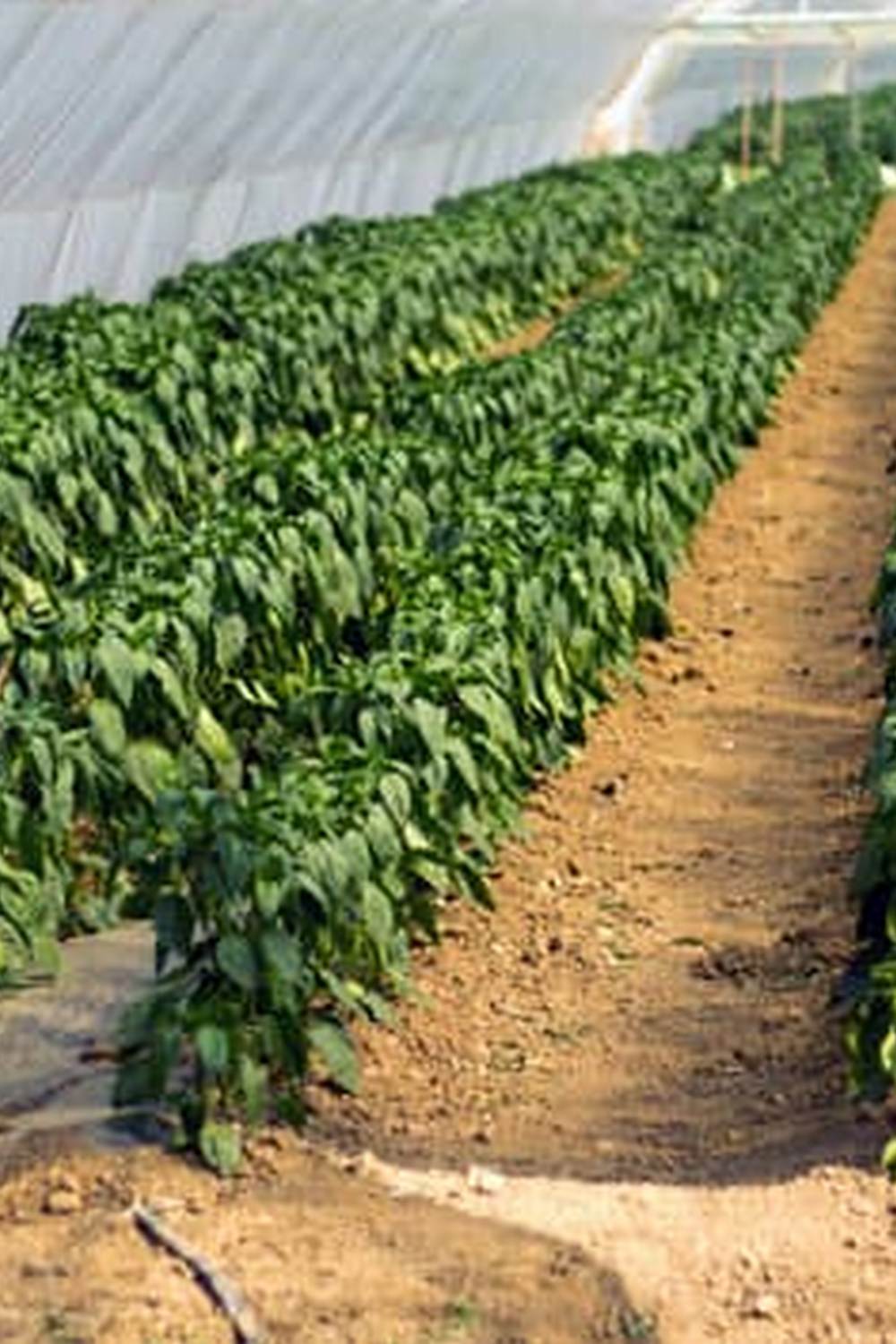Black walnut trees are generally bad for vegetable gardens due to their allelopathic properties, which can inhibit the growth of other plants. This article will explore the impact of black walnut trees on vegetable gardens and provide tips for managing a garden near these trees. Additionally, we will discuss common vegetables that are sensitive to black walnut trees and the long-term effects on soil and garden health.
Black walnut trees produce a toxic compound called juglone, which is released through their roots, leaves, and fruit. This compound can prevent the growth of many plants, making it challenging to maintain a healthy vegetable garden in close proximity to these trees. Understanding how black walnut trees affect other plant species is crucial for successful gardening in such environments.
In this article, we will delve into the allelopathic properties of black walnut trees and how they can impact the growth of vegetables. We will also explore how nutrient competition and soil toxicity further inhibit the growth of vegetables near these trees. Additionally, we will provide insights into alternative gardening methods for areas with black walnut trees as well as tips for managing a vegetable garden in such environments.
The Allelopathic Properties of Black Walnut Trees
Black walnut trees are known for their allelopathic properties, which means they release chemicals that can inhibit the growth of other plants. These chemicals, including juglone, are toxic to many plants and can have a significant impact on the yield and health of vegetable gardens. When these chemicals are present in the soil, they can affect neighboring plants by impeding seed germination, stunting root growth, and causing wilting or yellowing of leaves.
One of the most notable effects of black walnut trees on vegetable gardens is the sensitivity of certain plant species to juglone. Some common vegetables that are sensitive to the allelopathic properties of black walnut trees include tomatoes, peppers, potatoes, eggplant, and asparagus. These plants often exhibit symptoms such as wilting, yellowing of leaves, and stunted growth when grown in close proximity to black walnut trees.
In addition to their allelopathic properties, black walnut trees can also compete with nearby vegetables for nutrients in the soil. The roots of these trees are aggressive and extract a large amount of moisture and nutrients from the soil, leaving less available for vegetables. Furthermore, the accumulation of juglone in the soil from fallen leaves, twigs, and nuts can create toxicity that further inhibits the growth of vegetables near black walnut trees.
| Impact on Vegetable Gardens | Examples |
|---|---|
| Inhibition of growth | Tomatoes, peppers |
| Nutrient competition | Potatoes, eggplant |
| Toxicity in soil | Asparagus |
Overall, it is important for gardeners to be aware of the consequences of planting vegetables near black walnut trees. Understanding the effects of allelopathy and nutrient competition is essential for successful gardening in areas with these trees. In upcoming sections we will delve into how gardeners can manage their vegetable gardens near black walnut trees and explore alternative gardening methods that may be more suitable for these environments.
Common Vegetables That Are Sensitive to Black Walnut Trees
When planning a vegetable garden, it’s important to consider the impact of nearby black walnut trees. These trees are known for their allelopathic properties, which means they release chemicals that can inhibit the growth of other plants. This can have a significant impact on the success of a vegetable garden, as many common vegetables are sensitive to these chemicals.
Some of the most commonly sensitive vegetables include:
- Tomatoes
- Peppers
- Potatoes
- Eggplant
- Cabbage
These vegetables can struggle to grow in the presence of black walnut trees, often exhibiting stunted growth or yellowing leaves. It’s important for gardeners to be aware of these sensitivities when planning and planting their vegetable gardens.
In addition to these specific vegetables, it’s important to note that black walnut trees can have a negative impact on the overall health of a vegetable garden. The nutrient competition and soil toxicity created by these trees can further inhibit the growth of all types of vegetables. This makes it especially challenging to maintain a thriving vegetable garden in close proximity to black walnut trees.
Nutrient Competition and Soil Toxicity
Black walnut trees are known for their allelopathic properties, which means they release toxic compounds that can inhibit the growth of other plants. This can have a significant impact on vegetable gardens located near black walnut trees, as the toxic compounds released by the trees can affect the growth and development of vegetables. The roots, leaves, and nut hulls of black walnut trees contain juglone, a chemical that is particularly harmful to certain plants.
Juglone is a natural herbicide that is toxic to many plants, including commonly grown vegetables. It inhibits the growth of vegetables by disrupting their normal physiological processes, such as nutrient uptake and photosynthesis. As a result, vegetables in close proximity to black walnut trees may exhibit stunted growth, yellowing leaves, and overall poor productivity. Additionally, juglone has been found to persist in the soil for varying lengths of time, further impacting the long-term health of a vegetable garden.
Common vegetables that are sensitive to juglone include tomatoes, peppers, potatoes, eggplants, and blueberries. When planted near black walnut trees, these vegetables may struggle to thrive due to the presence of juglone in the soil. It is important for gardeners to be aware of these sensitivities when planning and maintaining a vegetable garden in areas with black walnut trees.
| Juglone-Sensitive Vegetables | Impact on Growth |
|---|---|
| Tomatoes | Inhibited growth and yellowing leaves |
| Peppers | Stunted growth and reduced productivity |
| Potatoes | Poor tuber development and decreased yield |
Tips for Managing a Vegetable Garden Near Black Walnut Trees
Managing a vegetable garden near black walnut trees can be challenging due to the allelopathic properties of the trees, which can inhibit the growth of other plants. However, with proper care and management, it is possible to have a successful vegetable garden in close proximity to black walnut trees. Here are some tips for managing a vegetable garden near black walnut trees:
- Choose tree-resistant vegetables: Some vegetables are more tolerant to the allelopathic effects of black walnut trees. Consider planting vegetables such as onions, garlic, asparagus, and squash, which are less sensitive to the toxins released by the trees.
- Use raised beds or containers: To minimize the impact of the allelopathic substances from black walnut trees on your vegetable garden, consider using raised beds or containers with fresh soil. This will create a barrier between your vegetables and the toxic compounds in the soil.
- Regularly monitor and amend soil: Test your soil regularly for nutrient levels and pH balance. Black walnut trees can deplete the soil of certain nutrients and make it more acidic, so it’s important to amend the soil with organic matter and lime as needed.
In addition to these tips, it’s also important to pay attention to the overall health of your black walnut trees. Keep them properly pruned and fertilized to minimize their negative impact on your vegetable garden.
Ultimately, while managing a vegetable garden near black walnut trees may require extra effort and consideration, it is possible to successfully grow a variety of vegetables in this challenging environment. By implementing these tips and techniques, you can enjoy a thriving vegetable garden despite the presence of black walnut trees.
Alternatives to Traditional Vegetable Gardening in Areas With Black Walnut Trees
When faced with the challenge of gardening near black walnut trees, traditional vegetable gardening may not be the most viable option. However, there are several alternatives to consider that can still allow for successful and productive cultivation.
Container Gardening
One alternative to traditional vegetable gardening in areas with black walnut trees is container gardening. By growing vegetables in containers, such as pots or raised beds, gardeners can control the soil composition and nutrient levels, reducing the impact of the allelopathic chemicals released by the black walnut trees. This method also allows for easy mobility and relocation of the plants if necessary.
Hydroponic Gardening
Another alternative is hydroponic gardening, a method of growing plants without soil. By using a nutrient-rich water solution, gardeners can bypass the issues of soil toxicity caused by black walnut trees. Hydroponic systems can be set up indoors or outdoors and provide a controlled environment for vegetable growth.
Vertical Gardening
Vertical gardening is also an effective alternative in areas with black walnut trees. By utilizing vertical structures such as trellises, hanging baskets, or wall-mounted planters, gardeners can make efficient use of space while minimizing contact with the allelopathic effects of black walnut trees.
By considering these alternatives to traditional vegetable gardening, gardeners can still enjoy growing their own produce despite the challenges posed by black walnut trees. Each method offers its own unique advantages and can provide a solution for successfully cultivating vegetables in areas where black walnut trees are present.
The Long-Term Impact of Black Walnut Trees on Soil and Vegetable Garden Health
Effects on Soil Composition
The long-term presence of black walnut trees near a vegetable garden can have significant effects on the composition of the soil. The roots of black walnut trees release juglone, a toxic substance that can remain in the soil for years after the tree has been removed. This can lead to changes in the pH levels and nutrient content of the soil, making it more challenging for vegetables to thrive.
Vegetable Garden Health
Over time, the presence of black walnut trees can result in decreased productivity and health of vegetable gardens. The allelopathic properties of juglone released by black walnut trees can inhibit seed germination and root growth in sensitive plants. As a result, vegetables may struggle to grow and reach maturity, leading to poor yields and overall garden productivity.
Long-Term Management Strategies
When faced with the long-term impact of black walnut trees on soil and vegetable garden health, it is important for gardeners to implement effective management strategies. This may include regularly testing the soil for juglone levels, implementing raised beds with fresh soil, or considering alternative gardening methods such as container gardening or hydroponics. Additionally, selecting and planting juglone-resistant vegetables can help mitigate the negative impact of black walnut trees on vegetable garden health.
Conclusion
In conclusion, it is crucial to consider the presence of black walnut trees when planning a vegetable garden. The allelopathic properties of these trees can have a significant impact on the growth and success of a vegetable garden, as they release toxic substances that inhibit the growth of many common vegetable plants. Understanding which vegetables are sensitive to black walnut trees and implementing strategies to manage their impact is essential for gardening success in areas where these trees are present.
When dealing with black walnut trees, it is important to note that nutrient competition and soil toxicity are major factors that can hinder the growth of vegetables. These trees release juglone, a substance that can negatively affect the health and development of neighboring plants. As such, it is crucial to carefully plan and manage a garden in close proximity to black walnut trees in order to mitigate these challenges.
In areas with established black walnut trees, alternative gardening methods may need to be considered. Raised beds or container gardening are options that may bypass the inhibitory effects of the black walnut’s toxicity on the soil. While managing a vegetable garden near black walnut trees may present its challenges, with careful planning and consideration, it is still possible to have a successful and thriving garden in such environments.
Frequently Asked Questions
Are Black Walnut Leaves Toxic for Gardens?
Black walnut leaves contain a chemical called juglone, which is toxic to certain plants. When these leaves decompose, the juglone can leach into the soil and negatively affect nearby plants.
How Far Should a Garden Be From a Black Walnut Tree?
For gardens to be safe from the effects of black walnut trees, it’s recommended that they be planted at least 50 to 80 feet away from any garden beds or cultivated areas. This distance helps reduce the risk of juglone exposure.
How Long Does Black Walnut Toxic Persist in the Soil?
The toxic effect of black walnut on the soil can persist for several years after the tree has been removed. The decay of roots and other plant material can release juglone for some time, making it challenging to grow susceptible plants in that area until the toxin has dissipated.

If you’re looking to get into vegetable gardening, or are just looking for some tips on how to make your current garden better, then you’ve come to the right place! My name is Ethel and I have been gardening for years. In this blog, I’m going to share with you some of my best tips on how to create a successful vegetable garden.





